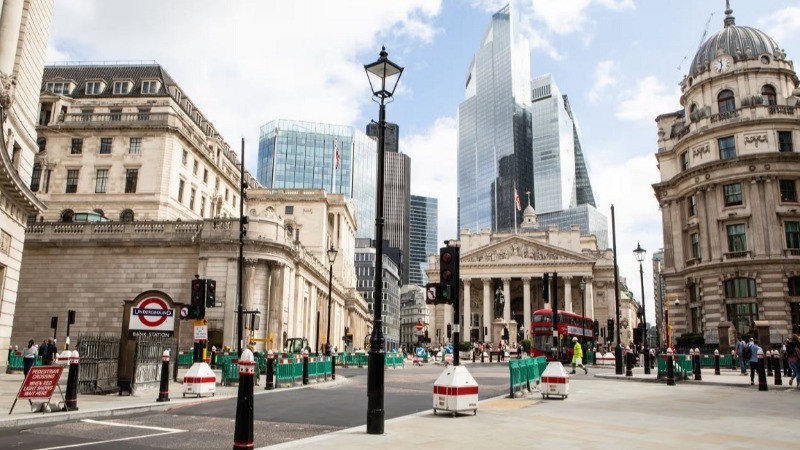
The Bank of England is facing a tough decision as the UK economy sends mixed signals. On one hand, companies are cutting jobs at the fastest rate in four years, which is a worrying sign. On the other hand, the economy is showing some growth.
A recent survey shows that prices are rising fast, which could mean inflation is making a comeback. This is a concern for the Bank of England, which will decide on interest rates soon.
To make matters worse, retailers are struggling, with sales falling in January after a disappointing Christmas. People are also feeling less confident about the economy, which could affect their spending habits.
All this puts pressure on the government to get the economy back on track. With financial markets being volatile, it's a challenging time for policymakers.
Job Cuts and Economic Pressure
Official data shows payroll numbers declined in November and December as businesses started to cut staff, and job vacancies continued to drop. A recent survey revealed that more businesses reduced staff levels in January than at any time since the 2008-09 financial crisis, apart from the pandemic.
Retail giant J Sainsbury recently announced 3,000 job cuts across its operations, and Primark’s parent company, Associated British Foods, reported that customers are buying fewer clothes due to job insecurity.
Despite such retrenchments, wages have continued to rise. Private sector wages, excluding bonuses, grew at an annual rate of 6% during the three months leading to November, which is double the 3 percent rate that the Bank of England (BoE) considers sustainable for hitting its 2% inflation target.
Challenges for the Bank of England
Economists are concerned about the ripple effects of rising wages. For instance, the minimum wage hike indirectly pushes up pay for higher-level staff as companies try to keep promotions attractive. Andrew Wishart, an economist at Berenberg Bank, described this as a “serious headache” for the BoE, which is expected to lower interest rates from 4.75 percent to 4.5 percent in early February.
He added that while the National Insurance contribution increase makes it harder for businesses to absorb costs, some companies will still manage to pass the burden onto customers. This could keep inflation above 3 percent later in the year.
Looking Ahead
Some economists believe wage growth will slow later this year. Businesses are expected to hire fewer highly paid professionals, reducing competition for higher salaries. Liz Martins, an economist at HSBC, said the focus has shifted to cost-cutting measures like replacing workers with AI, reducing pay, or offshoring jobs, which may help lower inflation in the long run.
However, wage growth may not decline quickly enough for the BoE’s comfort. A recent survey showed four-fifths of employers plan to offer smaller pay increases in 2025 than they did this year. Yet, many still expect to offer raises exceeding 3 per cent, and over 40 per cent of employees who have already secured deals are getting a 4% or higher increase.
Elliott Jordan-Doak, senior UK economist at Pantheon Macroeconomics, pointed out the dilemma for policymakers. Tax hikes, global uncertainties, and rising tariffs are pushing inflation and growth in conflicting directions.
This means that while slow economic growth might prompt interest rate cuts, inflation remains too high for the BoE to ignore. If current trends continue, unemployment may need to rise even further to bring inflation under control.